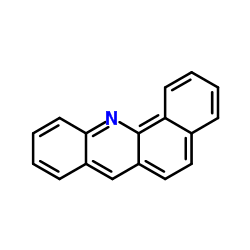Surface changes and hormone production in pituitary cells during tumorigenesis.
W K Khalil, L Gáspár, G Szalai, J Julesz, M Galfi
Index: J. Exp. Clin. Cancer Res 18(4) , 553-8, (1999)
Full Text: HTML
Abstract
Prolactinomas were induced by chronic estrone acetate treatment in female Wistar rats in vivo. After enzymatic dissociation of the tumor tissue, monolayer cell cultures were obtained. In vitro tumor induction was performed by treatment of normal monolayer anterior pituitary cell cultures with a 1:1 mixture of 7,9-dimethylbenz[c]acridine: 8-methylbenz[c]acridine. For immunohistochemistry, the cell cultures were stained by the peroxidase-antiperoxidase method for standardization; the nonspecific hormone release was induced with 30 mM K+. The prolactin, alpha-melanotropin, and adrenocorticotropin levels in the supernatant were measured by specific, sensitive radioimmunoassays. The results indicated surface differences between the in vivo induced prolactinoma cells and normal pituitary cells: the attachment of the prolactinoma cells required 15% collagen treatment, whereas normal cells required only 3-4% collagen. Tumor cells induced in vitro by methylbenz[c]acridine treatment were able to attach only after ammonia activation of the collagen surface. These findings strongly suggest that the mode of tumor induction can result in differences in membrane fluidity; this phenomenon is possibly connected with the levels of prolactin, adrenocorticotropin and alpha-melanotropin hormone production of these endocrine tumor cells.
Related Compounds
| Structure | Name/CAS No. | Molecular Formula | Articles |
|---|---|---|---|
 |
BENZ(C)ACRIDINE
CAS:225-51-4 |
C17H11N |
|
Substituted benz[a]acridines and benz[c]acridines as mammali...
2000-05-01 [Bioorg. Med. Chem. 8(5) , 1171-82, (2000)] |
|
Heteroatom effects in chemical carcinogenesis: effects of ri...
1983-12-01 [Cancer Biochem. Biophys. 7(1) , 53-60, (1983)] |
|
Differentiated genotoxic response of carcinogenic and non-ca...
1985-03-01 [Carcinogenesis 6(3) , 455-7, (1985)] |
|
Immunomodulation activity of phenothiazines, benzo[a]phenoth...
1993-01-01 [Anticancer Res. 13(2) , 439-42, (1993)] |
|
Antiplasmid and carcinogenic molecular orbitals of benz[c]ac...
1993-01-01 [Anticancer Res. 13(1) , 263-6, (1993)] |